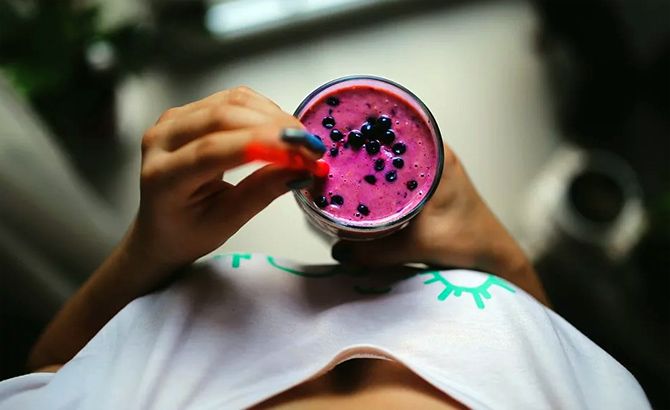Probiotics are known to improve the gut flora and help prevent progression of digestive disorders, says Afaaf Shaikh.

Digestive problems have become very common among millennials, primarily because of the western diet.
These fancy foods are high in refined carbs, saturated fats, additives, lack fibre and essential nutrients thereby resulting in common digestive issues like acidity, bloating, indigestion and constipation.
Food additives including salt, glucose and other chemicals contribute to gut inflammation commonly known as leaky gut.
Artificial sweeteners like xylitol and erythritol can cause bloating, diarrhoea in around 65 to 70% of the people.
Although there are many medications available to temporarily relieve these symptoms but they are not ideal for long term solutions.
In case of severe acidity, one might have to take a daily dose of antacids, H2 blockers to reduce the amount of acid the stomach produces or take proton pump inhibitors like omeprazole which work on reducing stomach acid and helps heal the oesophagus.
However, strong doses of medication often cause gastric disturbances.
Imbalance in the gut bacteria can cause irritable bowel syndrome and irritable bowel diseases like ulcerative colitis, Crohn’s disease.
Ideally, a correct diet rich in probiotics, prebiotics, dietary fibre, fewer preservatives helps aid against digestive disorders.
Here are some foods you should include as a part of your daily diet:
Probiotics are known to improve the gut flora and help prevent progression of digestive disorders.
1. Yoghurt
Yoghurt and Kefir are good options one can incorporate in the diet to improve the gut health.
A small bowl of curd -- just as is or in the form of raita/glass of buttermilk can be easily incorporated with your lunch and dinner.
Low-fat yoghurt is easily available off the shelf and can be consumed as a mid-meal snack with fresh fruit toppings or nuts/ raisins.
2. Kefir
Kefir is a fermented milk beverage made with a combination of yeast and bacteria.
It contains probiotics (10-34 strains), protein, B vitamins, potassium and calcium. It is a more powerful probiotic as compared to yoghurt.
Kefir is available in both water and milk form and comes in various flavours.
If you are ordering from a restaurant, please check the sugar content before opting for any beverage as excess sugar is not advisable.
3. Whole grains and high fibre foods
Grains like oats, brown rice or whole wheat bread, quinoa, millets like jowar/bajra/ragi etc along with nuts, beans and fruits are a good source of fibre, which naturally helps prevent acidity.
It has been researched that a daily intake of 12.5 g of dietary fibre led to a decrease in the GERD (Gastroesophageal reflux disease, that causes heartburn or acidity) and improve digestive issues like indigestion, constipation and bloating.
Start your day with oatmeal in breakfast with fresh fruits or nuts in skimmed milk.
Ragi can be used to make dosa, uttapam or roti.
4. Melons
It is better to opt for non-citrus fruits like watermelons, cantaloupe and honeydew as they are less likely to aggravate the acidity/ reflux symptoms.
Melons are slightly alkaline in nature Ph 6.1 which makes them mildly acidic.
You can have it in the form of popsicles or freshly cut cubes in between or post meals.
5. Green leafy vegetables
Leafy vegetables like spinach, kale, asparagus and Brussels sprouts are alkaline in nature. Being low in acid and fat, they lower the acidic levels in the stomach
You can eat it in a salad or have it in the form of veggies.
It is a water-soluble source of carbohydrates which helps to lower the bad cholesterol levels (low-density lipoprotein (LDL) levels.
Leafies also help to provide relief from diarrhoea and slows down the passage of food from the intestine.
Pectin in leafy vegetables helps to regulate bowel movements, beneficial during diarrhea, constipation and also helps prevent gastro-oesophageal reflux.
6. Banana
Banana is a good source of pectin. It is often advisable to have a banana after a meal as it soothes the inner lining of the oesophagus.
One can have a raw banana in the form of vegetables or as a fruit post/between meals.
7. Apple
Apple also contains pectin which acts like a prebiotic, improving gut health.
Besides, it helps inhibit the growth of harmful bacteria like clostridium which are known to cause gastric disturbances.
8. Fermented foods
Kimchi is a Korean staple made with fermented vegetables, which is also a rich source of probiotics. It also contains a substance known as vitamin U which has antiulcer properties.
Sauerkraut is another fermented shredded cabbage mixture. It contains lactobacillus planetarium and lactobacillus acidophilus, most commonly known to fight the acid reflux caused by H pylori.
Sauerkraut contains enzymes such as protease, amylase, and lipase, which helps the breakdown of proteins, sugars and fatty acids.
This regulates the rate of gastric emptying and reduces the acid reflux (backward flow of stomach contents into the oesophagus).
Foods like tempeh, kimchi, sauerkraut, kombucha, miso are best to improve digestion.
You must however avoid Kombucha as it is acidic and carbonated due to fermentation.
9. Fennel seeds
Strong spices like chillies, black pepper, peppermint trigger acidity than have a soothing effect.
Instead you must add herbs like parsley, fennel seeds and jeera in your food to prevent acidity and heartburn.
Fennel seeds contains anetole, an anti-inflammatory phytonutrient, which helps in the relaxation of stomach walls.
Have it raw; add it while cooking for flavour or have it in the form of herb-infused water.
10. Ginger
Ginger is rich in antioxidants and helps reduce gastric irritation.
Make sure you take it in moderation as an excess might aggravate acidity and/or heartburn symptoms.
Doses of ginger help reduce the flow of stomach acid in the oesophagus, reduce inflammation and symptom of acid reflux. It can be added raw in tea, soups, salads or meals.
Along with the above-mentioned foods, one must also avoid the acid triggering foods like strong spices like red chillies, black pepper and garam masala, excessively oily and fatty foods like French fries, samosa, carbonated beverages, caffeinated drinks and alcohol.
Smoking can also trigger acidity.
Certain lifestyle modifications can also help you fight acidity.
Here are some quick tips:
- Chew the food well
- Avoid taking long gaps between meals
- Avoid sleeping immediately after eating
- Avoid overeating
- Avoid excessive consumption of tea/ coffee during the day
- Avoid excessive smoking
- Avoid strong doses of medications
- Spend 45 minutes to 1 hour to exercise daily

Afaaf Shaikh is nutritionist at Digestive Health Institute by Dr Muffi










